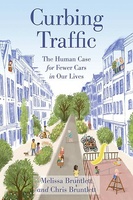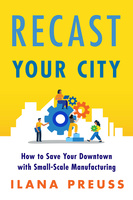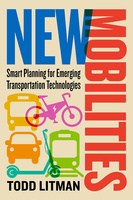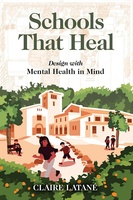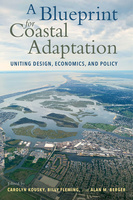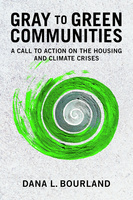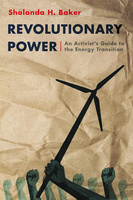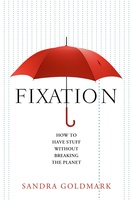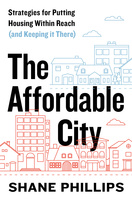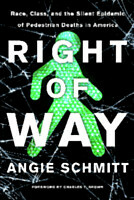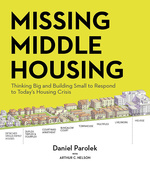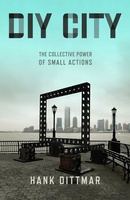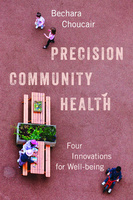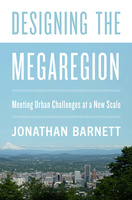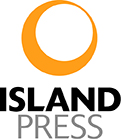
Island Press began with a simple idea: knowledge is power—the power to imagine a better future and find ways for getting us there. Founded in 1984, Island Press’ mission is to provide the best ideas and information to those seeking to understand and protect the environment and create solutions to its complex problems.
A Good Drink
In Pursuit of Sustainable Spirits
“Insightful tour de force… Farrell’s writing is as informative as it is intoxicating” -- Publishers Weekly
As a bartender, Shanna Farrell not only poured spirits, but learned their stories—who made them and how. In A Good Drink, Farrell goes in search of the bars, distillers, and farmers who are driving a transformation to sustainable spirits. She meets mezcaleros in Guadalajara who are working to preserve traditional ways of producing mezcal; a London bar owner who has eliminated individual bottles and ice; and distillers in South Carolina who are bringing a rare variety of corn back from near extinction, among many others.
For readers who have ever wondered who grew the pears that went into their brandy or why their cocktail is an unnatural shade of red, A Good Drink will be an eye-opening tour of the spirits industry. For anyone who cares about the future of the planet, it offers a hopeful vision of change, one pour at a time.
Trains, Buses, People, Second Edition
An Opinionated Atlas of US and Canadian Transit
In Trains, Buses, People, Second Edition: An Opinionated Atlas of US and Canadian Transit, Spieler profiles the 49 metropolitan areas in the US and eight metropolitan areas in Canada that have rail transit or BRT, using data, photos, and maps for easy comparison. The best and worst systems are ranked and Spieler offers analysis of how geography, politics, and history complicate transit planning.
Trains, Buses, People, Second Edition will help any citizen, professional, or policymaker with a vested interest evaluate a transit proposal and understand what makes transit effective and how to make it inclusive.
The Uncommon Knowledge of Elinor Ostrom
Essential Lessons for Collective Action
In The Uncommon Knowledge of Elinor Ostrom, author Erik Nordman brings to life Ostrom’s brilliant mind. Ostrom’s research proved that people can and do act in collective interest, and her ideas about common resources have played out around the world, from Maine lobster fisheries to taxicab use in Nairobi. Ostrom broke barriers at a time when women were regularly excluded from academia. Her message of shared collective action is more relevant than ever for solving today’s most pressing environmental problems.
Curbing Traffic
The Human Case for Fewer Cars in Our Lives
Their insights will help decision makers and advocates to better understand and communicate the human impacts of low-car cities: lower anxiety and stress, increased independence, social autonomy, inclusion, and improved mental and physical wellbeing.
Curbing Traffic provides relatable, emotional, and personal reasons why it matters and inspiration for exporting the low-car city.
Recast Your City
How to Save Your Downtown with Small-Scale Manufacturing
Preuss draws from her experience working with local governments, large and small, from Knoxville, Tennessee, to Columbia, Missouri, to Fremont, California. She provides tools, such as her five-step method for recasting your city, that local leaders in government, business, and real estate as well as entrepreneurs and advocates in every community can use.
New Mobilities
Smart Planning for Emerging Transportation Technologies
Public policies around New Mobilities can either help create heaven, a well-planned transportation system that uses new technologies intelligently, or hell, a poorly planned transportation system that is overwhelmed by conflicting and costly, unhealthy, and inequitable modes. His expert analysis will help planners, local policymakers, and concerned citizens to make informed choices about the New Mobility revolution.
The Economics of Sustainable Food
Smart Policies for Health and the Planet
The Economics of Sustainable Food details the true cost of food for people and the planet. It illustrates how to transform our broken system, alleviating its severe financial and human burden. The key is smart macroeconomic policy that moves us toward methods that protect the environment like regenerative land and sea farming, low-impact urban farming, and alternative protein farming, and toward healthy diets. The book’s multidisciplinary team of authors lay out detailed fiscal and trade policies, as well as structural reforms, to achieve those goals.
Schools That Heal
Design with Mental Health in Mind
Overtourism
Lessons for a Better Future
Overtourism: Lessons for a Better Future charts a path toward tourism that is truly sustainable, focusing on the triple bottom line of people, planet, and prosperity. This practical book examines the causes and effects of overtourism before turning to emerging management strategies. Visitor education, traffic planning, and redirection to lesser known sites are among the measures that can protect the economic benefit of tourism without overwhelming local communities.
As tourism revives around the world, these innovations will guide government agencies, parks officials, site managers, civic groups, environmental NGOs, tourism operators, and others with a stake in protecting our most iconic places.
A Blueprint for Coastal Adaptation
Uniting Design, Economics, and Policy
Getting to the Heart of Science Communication
A Guide to Effective Engagement
In Getting to the Heart of Science Communication, Faith Kearns has penned a succinct guide for navigating the human relationships critical to the success of practice-based science. This meticulously researched volume takes science communication to the next level, helping scientists to see the value of listening as well as talking, understanding power dynamics in relationships, and addressing the roles of trauma, loss, grief, and healing.
Building Community Food Webs
Network-building takes a variety of forms and arises out of multiple activities. Farmers and researchers may convene to improve farming practices collaboratively. Food banks engage their clients to challenge the root causes of poverty. Municipalities invest large sums to protect farmland from development.
Building Community Food Webs captures the essence of these efforts, and offers pragmatic insights for community food leaders anywhere.
Flames of Extinction
The Race to Save Australia's Threatened Wildlife
Rewilding Agricultural Landscapes
A California Study in Rebalancing the Needs of People and Nature
This accessibly written, groundbreaking contributed volume is the first to examine in detail what it would take to retire eligible farmland and restore functioning natural ecosystems. The lessons in Rewilding Agricultural Landscapes will be useful to conservation leaders, policymakers, groundwater agencies, and water managers looking for inspiration and practical advice for solving the complicated issues of agricultural sustainability and water management.
Reinventing Food Banks and Pantries
New Tools to End Hunger
The Monsanto Papers
Deadly Secrets, Corporate Corruption, and One Man’s Search for Justice
Gray to Green Communities
A Call to Action on the Housing and Climate Crises
Bourland draws from her experience leading the Green Communities Program at Enterprise Community Partners, which resulted in the first standard for green affordable housing.
The book opens with the potential of green affordable housing, followed by the problems that it is helping to solve, challenges in the approach that need to be overcome, and recommendations for the future of green affordable housing. Gray to Green Communities brings together stories from the people and projects of the Green Communities’ program.
Gray to Green Communities will empower and inspire anyone interested in the future of housing and our planet.
Revolutionary Power
An Activist's Guide to the Energy Transition
Baker provides a playbook for the energy transformation complete with a step-by-step analysis of the key energy policy areas that are ripe for intervention. She tells the stories of those who are working to be architects of a more just system and draws from her own experience as an energy-justice advocate, a lawyer, and a queer woman of color.
Revolutionary Power is the guide to a just energy transformation.
Leadership for Sustainability
Strategies for Tackling Wicked Problems
Leadership for Sustainability gives readers perspective and skills for promoting creative and collaborative solutions. Blending systems thinking approaches with leadership techniques, it offers dozens of strategies and specific practices, illustrated by inspiring case studies. Readers will come away with a holistic understanding of how to lead from where they are by applying leadership principles and practices to a wide range of wicked situations.
The Bird-Friendly City
Creating Safe Urban Habitats
Naturalist
A Graphic Adaptation
E.O. Wilson’s bestselling memoir comes to life in a beautifully illustrated graphic adaptation.
Diversifying Power
Why We Need Antiracist, Feminist Leadership on Climate and Energy
Stephens examines climate and energy leadership related to job creation and economic justice, health and nutrition, and housing and transportation. She explains why we need to reclaim and restructure climate and energy systems so policies are explicitly linked to social, economic, and racial justices.
Diversifying Power shows that anyone working on issues related to energy or climate (directly or indirectly) can leverage the power of collective action. The work to shift away from an extractive, oppressive energy system has already begun. By highlighting the creative individuals and organizations making change happen, Diversifying Power provides inspiration and encourages action on climate and energy justice.
The Affordable City
Strategies for Putting Housing Within Reach (and Keeping it There)
Phillips offers more than 50 policy recommendations addressing what he refers to as the “Three S’s” of Supply, Stability, and Subsidy. He makes a moral and economic case for why each is essential and recommendations for making them work together. He ends with a policy blueprint and concise implementation plan for each policy, including whether it should be pursued as an immediate, medium-term, or long-term priority.
The Affordable City is an essential tool for professional city planners, policymakers, public officials, and advocates working to improve affordability and increase community resilience through local action.
Right of Way
Race, Class, and the Silent Epidemic of Pedestrian Deaths in America
Schmitt examines the increase in pedestrian deaths in the US as well as programs and movements that are beginning to respond to the epidemic. Right of Way is a call to reframe the problem, acknowledge the role of racism and classism in the public response to these deaths, and energize advocacy around road safety.
Right of Way unveils a crisis that is rooted in both inequality and the undeterred reign of the automobile in our cities. It challenges us to imagine and demand safer and more equitable cities, where no one is expendable.
The Cougar Conundrum
Sharing the World with a Successful Predator
The Cougar Conundrum delivers a clear-eyed assessment of a modern wildlife challenge, offering practical advice for wildlife managers, conservationists, hunters, and those who share their habitat with large predators.
Planetary Health
Protecting Nature to Protect Ourselves
Interdisciplinary in nature, Planetary Health explores how accelerating environmental change affects each dimension of human health. It then turns to the rich terrain of solutions, reimagining our cities, our food systems, our energy sector, the chemicals we use, even our economics and our ethics. The result is a comprehensive and optimistic introduction to a field that is being adopted by researchers and universities around the world.
Parks and Recreation System Planning
A New Approach for Creating Sustainable, Resilient Communities
Missing Middle Housing
Thinking Big and Building Small to Respond to Today’s Housing Crisis
Parolek proves that density is too blunt of an instrument to effectively regulate for twenty-first-century housing needs. Whether you are a planner, architect, builder, or city leader, Missing Middle Housing will help you think differently about how to address housing needs for today’s communities.
Blueprint for Greening Affordable Housing, Revised Edition
Every affordable housing project can achieve the fundamentals of good green building design. The Blueprint gives project teams what they need to push for excellence.
Beyond Polarization
Public Process and the Unlikely Story of California's Marine Protected Areas
Beyond Polarization offers an optimistic message about the public policy process in a time of civic division: that policymakers, scientists, and local citizens can successfully collaborate to protect natural resources we all have a stake in.
DIY City
The Collective Power of Small Actions
In DIY City, Dittmar explains why individual initiative, small-scale business, and small development matter, with lively stories from his own experience and examples from recent history.
Dittmar’s timely response to the challenges many cities face today is to make Do-It-Yourself the norm rather than the exception by removing the barriers to small-scale building and local business. The message of DIY City can offer hope to anyone who cares about cities.
Precision Community Health
Four Innovations for Well-being
In Precision Community Health, Choucair shows how those successes can be replicated and expanded around the country. The key is to use advanced technologies to identify which populations are most at risk for specific health threats and avert crises before they begin. Using this strategy can make a wholesale change in the way public health is practiced and in the well-being of all our communities.
Valuing Nature
A Handbook for Impact Investing
William Ginn provides a roadmap for conservation professionals, nonprofit managers, and impact investors to improve the management of natural systems.
Unnatural Companions
Rethinking Our Love of Pets in an Age of Wildlife Extinction
We love our pets. But there is a dark side to our domestic connection with animal life. The pet industry is contributing to a global conservation crisis for wildlife—often without the knowledge of pet owners. In Unnatural Companions, journalist Peter Christie argues that to reverse the alarming trend of wildlife decline, pet owners must acknowledge the pets-versus-conservation dilemma. Our well-fed and sheltered cats too often prey on small backyard wildlife, seemingly harmless reptiles released into the wild might be the next destructive invasive species, and the popular trend of designer pet food may have deleterious effects on the environment.
Christie's book is a cautionary tale to responsible pet owners, but he concludes with the positive message that the small changes we make at home can foster better practices within the pet industry that will ultimately benefit our pets’ wild brethren.
Designing Streets for Kids
Building on the success of their Global Street Design Guide, the National Association of City Transportation Officials (NACTO)-Global Designing Cities Initiative (GDCI) Streets for Kids program has developed child-focused design guidance to inspire leaders, inform practitioners, and empower communities around the world to consider their city from the eyes of a child.
Designing the Megaregion
Meeting Urban Challenges at a New Scale
There is an urgent need to begin designing megaregions, and Barnett offers a hopeful way forward using systems that are already in place.
Replenish
The Virtuous Cycle of Water and Prosperity
"Remarkable." —New York Times Book Review
"Clear-eyed treatise...Postel makes her case eloquently." —Booklist, starred review
"An informative, purposeful argument." —Kirkus
We spend billions of dollars on irrigation, dams, sanitation plants, and other feats of engineering to control water for our own prosperity. What if the answer was not control, but replenishment? Sandra Postel takes readers around the world to explore water projects that work with, rather than against, nature’s rhythms. Forest rehabilitation is safeguarding drinking water, farmers are planting cover crops to reduce polluted runoff, and “sponge cities” are capturing rainwater to curb urban flooding. Postel argues that efforts like these will be essential as we adjust to a hotter, wilder climate. Will we continue to fight the water cycle, endangering ourselves and the planet, or recognize our place in it and take advantage of the inherent services nature offers?
Primer of Ecological Restoration
This timely primer summarizes recent trends in the field suitable for introductory ecological restoration classes or for practitioners seeking constructive guidance for real-world projects.




